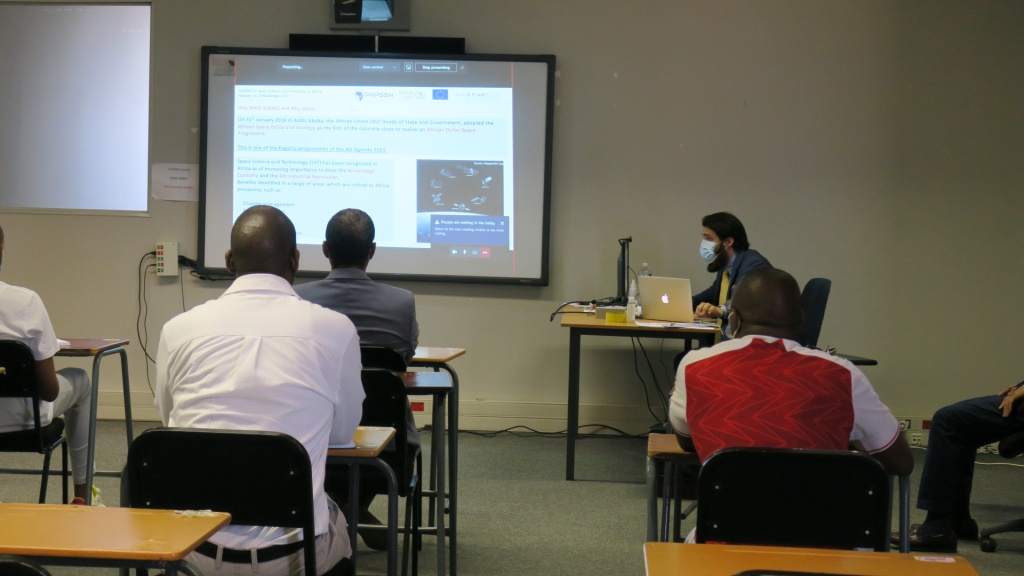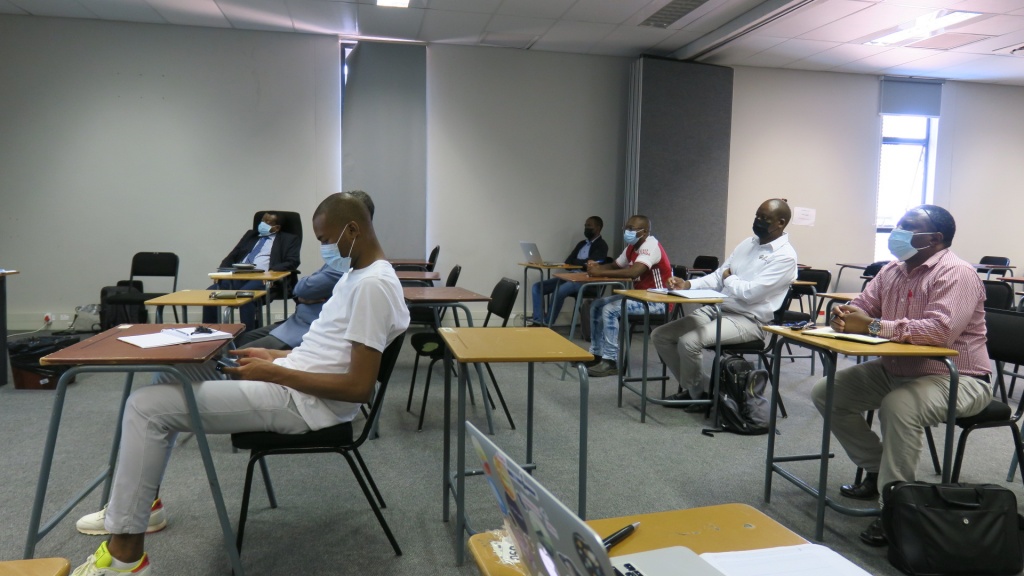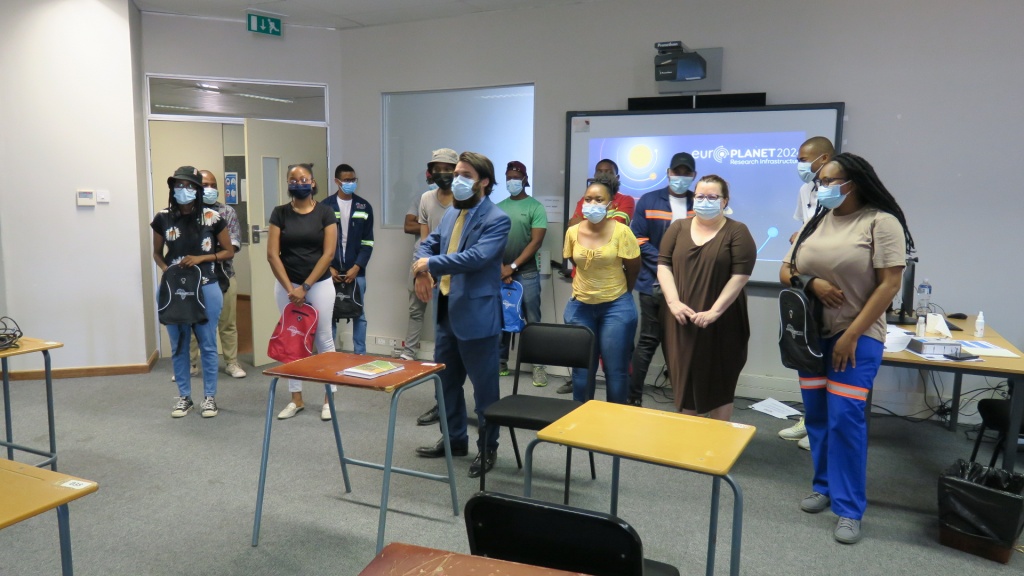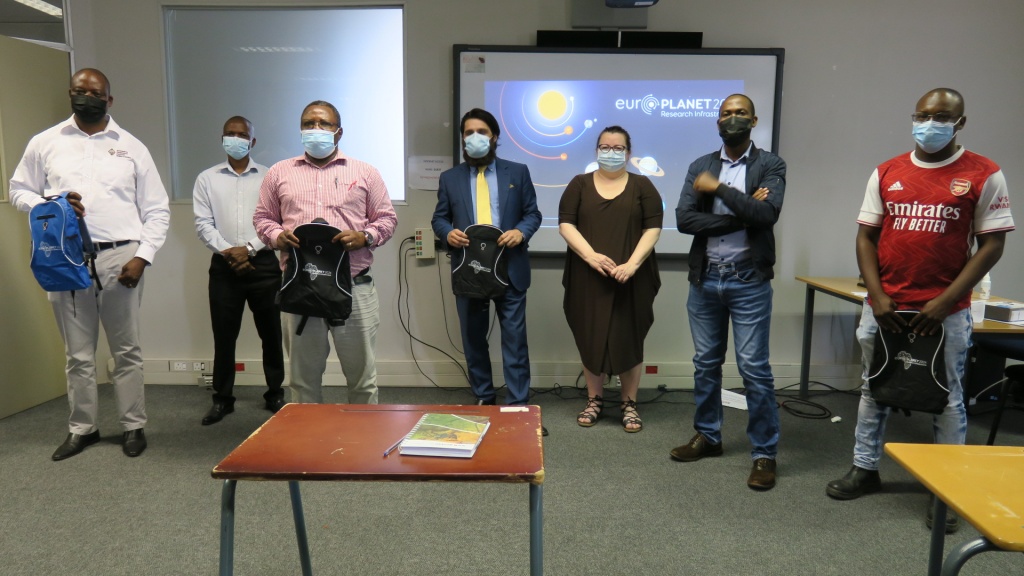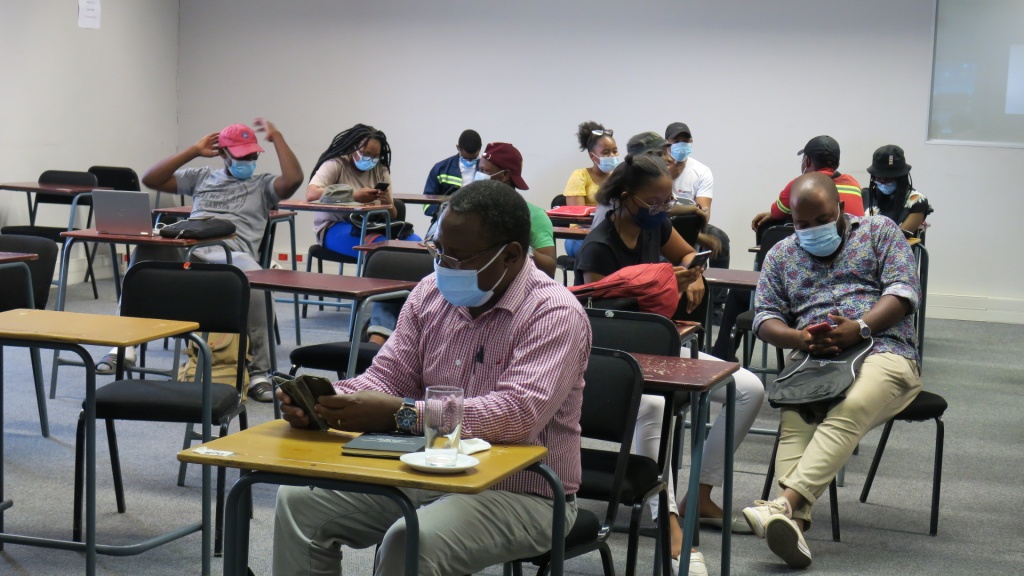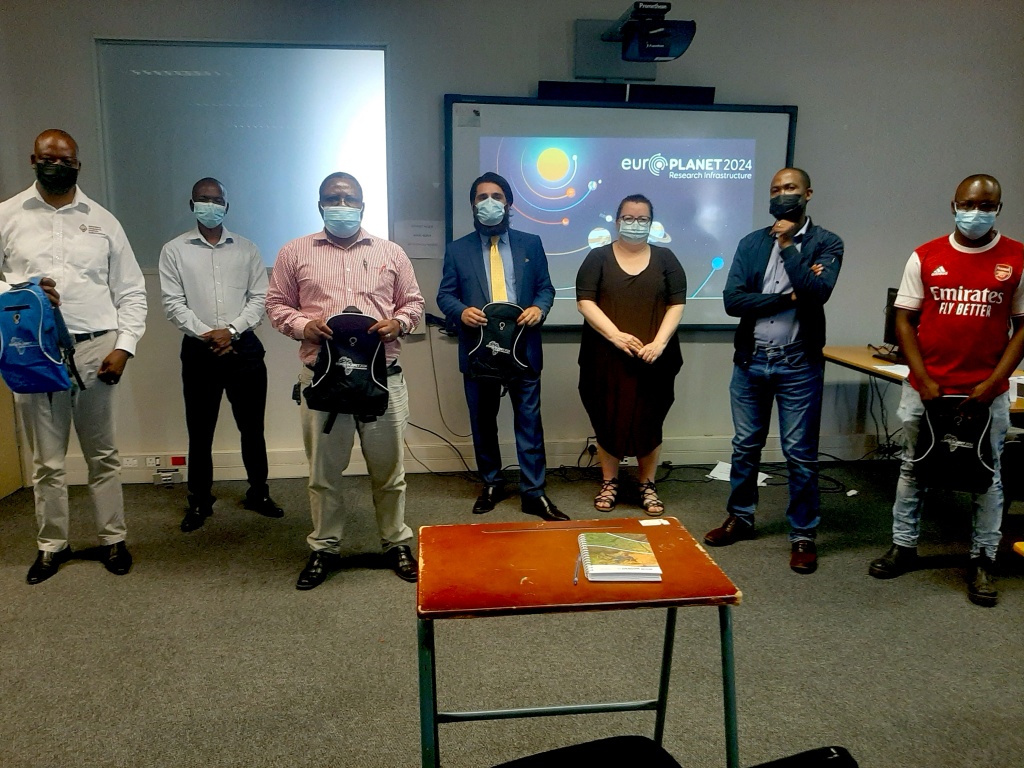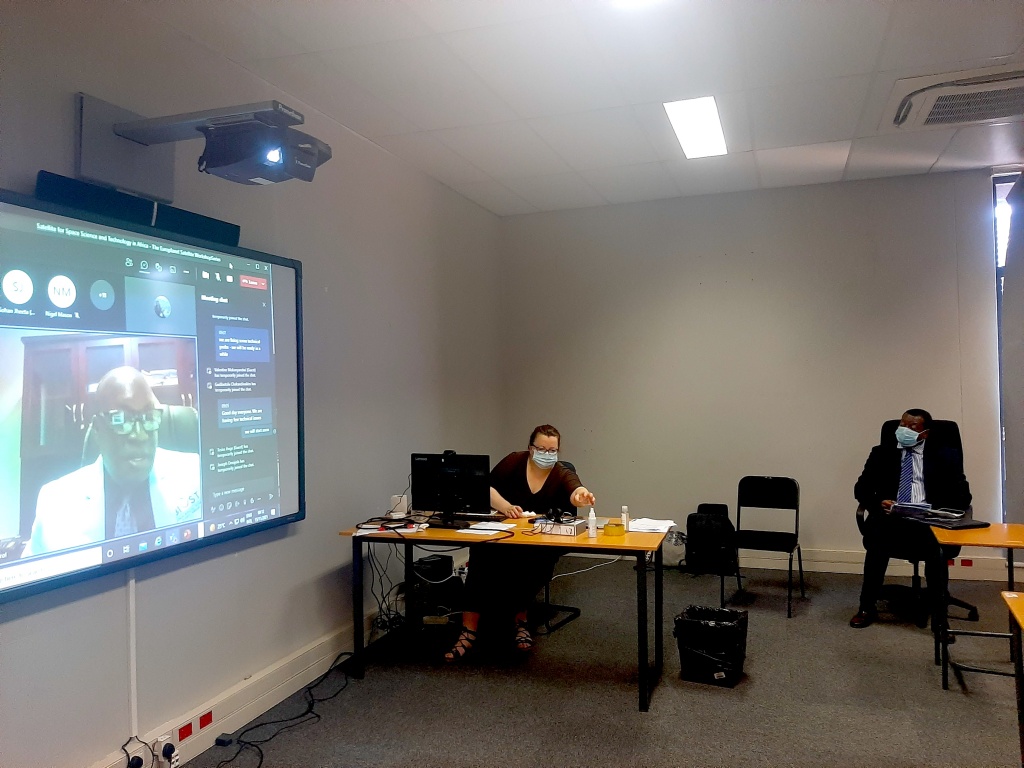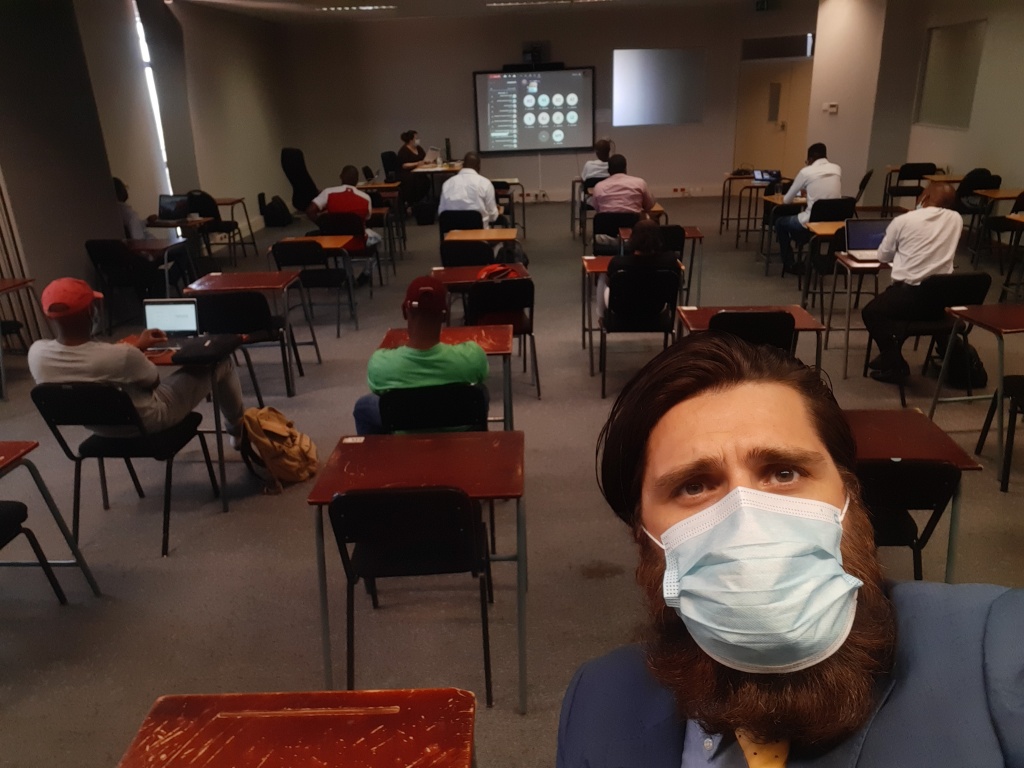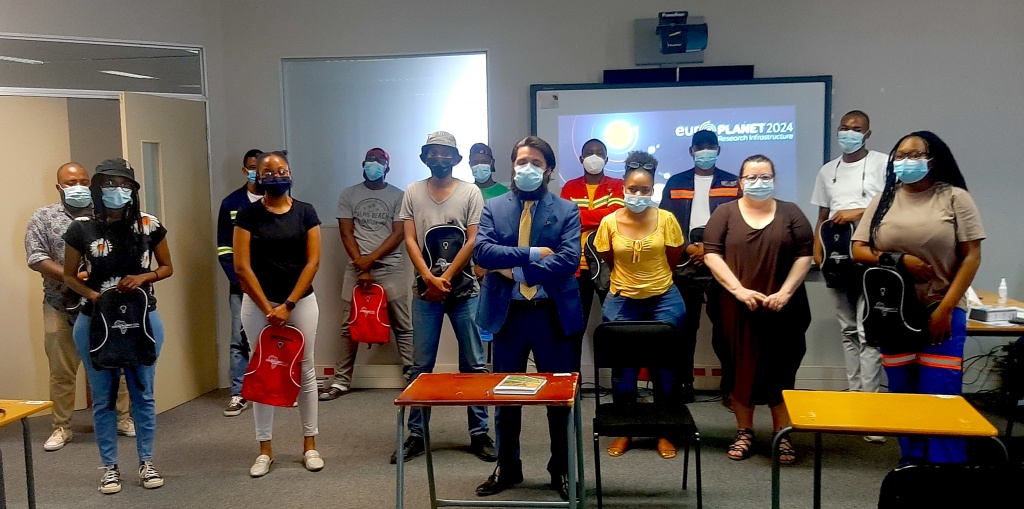Europlanet Satellite Workshop Series blasts off in Botswana
Press Release
A workshop that aims to kickstart the creation of a network for planetary science in Africa is being held at the Botswana International University of Science and Technology (BIUST) this week. Over 40 people are joining the hybrid meeting virtually, with 25 participants attending the meeting in-person in Palapye. The workshop is organised by the Europlanet 2024 Research Infrastructure, with funding from the European Commission’s Horizon 2020 programme, under the umbrella of the Europlanet Strategic Plan for Global Collaboration.
The workshop on ‘Satellites for Space Science and Technology in Africa’ brings together space technology specialists, scientists and students to discuss current topics in the rapidly developing field of space. Space has become an attractive frontier for African countries that have launched satellites based on scientific, technological or political ambitions. Satellites are used for Earth observation, communication, navigation atmospheric studies, astronomical observations and military applications, and more.
The workshop aims to support scientists and engineers at all career stages working to design satellite missions tackling scientific themes and specific target objects.
The workshop includes lectures, discussion panels and sessions for the exchange of ideas on research relating to satellites, satellite subsystems, aerospace engineering, orbital and attitude dynamics of spacecraft, and spacecraft-environment interactions.
Dr Fulvio Franchi of BIUST said: “We are happy to welcome so many participants to this workshop from across Africa and Europe. We hope that the outcomes of the workshop will lead to sustainable, mutually productive collaborations that will support space and planetary science in Africa for decades to come.”
Prof. Barbara Cavalazzi, of the University of Bologna, who leads the Global Collaboration activities for Europlanet 2024 RI said: “This Training school aims to drive revolutions in thinking, as well as science and technology, at all levels from observations, to mission concept design, to instruments, where the impact must advance our knowledge and accessibility to space at a fundamental level.”
Images
Contacts
Dr Fulvio Franchi
Department of Earth and Environmental Sciences
Botswana International University of Science and Technology (BIUST)
Private Mail Bag 16, Palapye
Botswana
franchiF@biust.ac.bw
Prof. Barbara Cavalazzi
BiGeA Department
University of Bologna
Via Zamboni 67
Italy
barbara.cavalazzi@unibo.it
About Europlanet
Since 2005, Europlanet has provided Europe’s planetary science community with a platform to exchange ideas and personnel, share research tools, data and facilities, define key science goals for the future, and engage stakeholders, policy makers and European citizens with planetary science.
The Europlanet 2024 Research Infrastructure (RI) has received funding from the European Union’s Horizon 2020 research and innovation programme under grant agreement No 871149 to provide access to state-of-the-art research facilities and a mechanism to coordinate Europe’s planetary science community. The project builds on a €2 million Framework 6 Coordination Action (EuroPlaNet), a €6 million Framework 7 Research Infrastructure (Europlanet RI) and a €10 million Horizon 2020 Research Infrastructure (Europlanet 2020 RI) funded by the European Commission.
The Europlanet Society promotes the advancement of European planetary science and related fields for the benefit of the community and is open to individual and organisational members. The Society’s aims are:
- To expand and support a diverse and inclusive planetary community across Europe through the activities of its 10 Regional Hubs.
- To build the profile of the sector through outreach, education and policy activities
- To underpin the key role Europe plays in planetary science through developing links at a national and international level.
Europlanet 2024 RI project website: www.europlanet-2024-ri.eu
Europlanet Society website: www.europlanet-society.org
Follow on Twitter via @europlanetmedia

